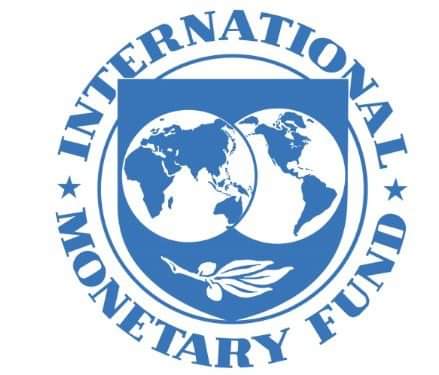
THE International Monetary Fund (IMF) on Monday lauded the Federal Government on its economic reform policies, especially on the Finance Act and the Deep Offshore Basin Act.
The commendation is contained in the IMF Article IV Consultation to Nigeria, released on Monday.
According to the Fund, the Federal Government had recognized the vulnerabilities facing the economy and taken the steps to boost revenue and improve budget implementation by signing the 2020 Budget before the end of last year.
It advised the Central Bank of Nigeria (CBN) to stop defending the naira through dollar interventions and adopt a unified exchange rate regime.
The preliminary findings on the economy, according to the Fund, showed that growth is still recovering, inflation is increasing, and external vulnerabilities rising.
The fund said fiscal reform momentum and recent tightening of monetary policy are welcome, adding that major policy adjustments remain necessary to contain short-term vulnerabilities and unlock Nigeria’s growth potential.
The IMF staff team, led by Amine Mati, Senior Resident Representative and Mission Chief for Nigeria, visited Lagos and Abuja from January 29-February 12, 2020, to conduct its annual Article IV Consultation discussions on Nigeria’s economy.
At the end of their visit, Mati said: “The pace of economic recovery remains slow, as declining real incomes and weak investment continue to weigh on economic activity. Inflation – driven by higher food prices – has risen, marking the end of the disinflationary trend seen in 2019. External vulnerabilities are increasing, reflecting a higher current account deficit and declining reserves that remain highly vulnerable to capital flow reversals.”
According to Mati, the exchange rate has remained stable, helped by steady sales of foreign exchange in various windows.
He said: “High fiscal deficits are complicating monetary policy. Weak non-oil revenue mobilisation led to further deterioration of the fiscal deficit, which was mostly financed by Central Bank of Nigeria (CBN) overdrafts. The interest payment to revenue ratio remains high at about 60 per cent.”
“The team held productive discussions with senior government and central bank officials. It also met with representatives of the banking system, the private sector, civil society organizations and development partners.
“The team wishes to thank the authorities and all those it met for the productive discussions, excellent cooperation, and warm hospitality.”
Mati said Nigeria’s economy faces challenging outlook, adding that the mission’s growth forecast for 2020 was revised down to two per cent to reflect the impact of lower international oil prices.
According to the Article IV report, inflation is expected to pick up, while deteriorating terms of trade and capital outflows will weaken the country’s external position.
The Fund said that the tightening of monetary policy in January 2020 through higher cash reserve requirements to respond to looming inflationary pressures is welcome.
The report said: “Progress on structural reforms—particularly in Doing Business, finalizing power sector reforms, and strengthening governance—is commendable.
“Major policy adjustments remain necessary to contain short-term vulnerabilities, build resilience, and unlock growth potential. Non-oil revenue mobilization—including through tax policy and administration improvements—remains urgent to ensure financing constraints are contained and the interest payments to revenue ratio sustainable.
“Recourse to central bank overdrafts should be limited and the mission supports the authorities’ plans to use the low domestic yield environment to front load their financing requirements.
“Further tightening of monetary policy—albeit through more conventional methods—is needed to contain domestic and external pressures arising from large amounts of maturing CBN bills.
“The mission reiterated its advice on ending direct central bank interventions, securitizing overdrafts to introduce longer-term government instruments to mop up excess liquidity and moving towards a uniform and more flexible exchange rate. Removing restrictions on access to foreign exchange for the 42 categories of imported goods would be needed to encourage long-term investment.
“Banking system vulnerabilities should continue to be addressed. The mission welcomed recent efforts to reduce legacy non-performing loans. The introduction of risk-based minimum capital requirements would also help strengthen bank resilience. Notwithstanding the significant increase in lending, concerns about shortened maturity, asset quality and conflicting monetary policy signals call for revisiting the minimum lending to deposit ratio directive.”
According to the report, structural reforms, particularly executing the much-delayed power sector recovery plan, implementing the anti-corruption and financial inclusion strategy, and addressing infrastructure and gender gaps—remain essential to boosting inclusive growth.
“Nigeria’s border closure will continue to have significant economic consequences on the country’s neighbors. It is important that all involved parties quickly resolve the issues keeping the borders closed, including to stop the smuggling of banned products,” the report said.
By Collins Nweze













